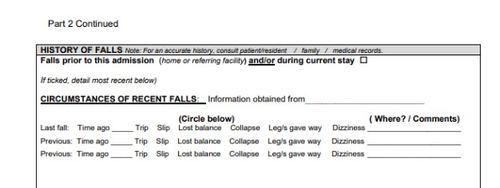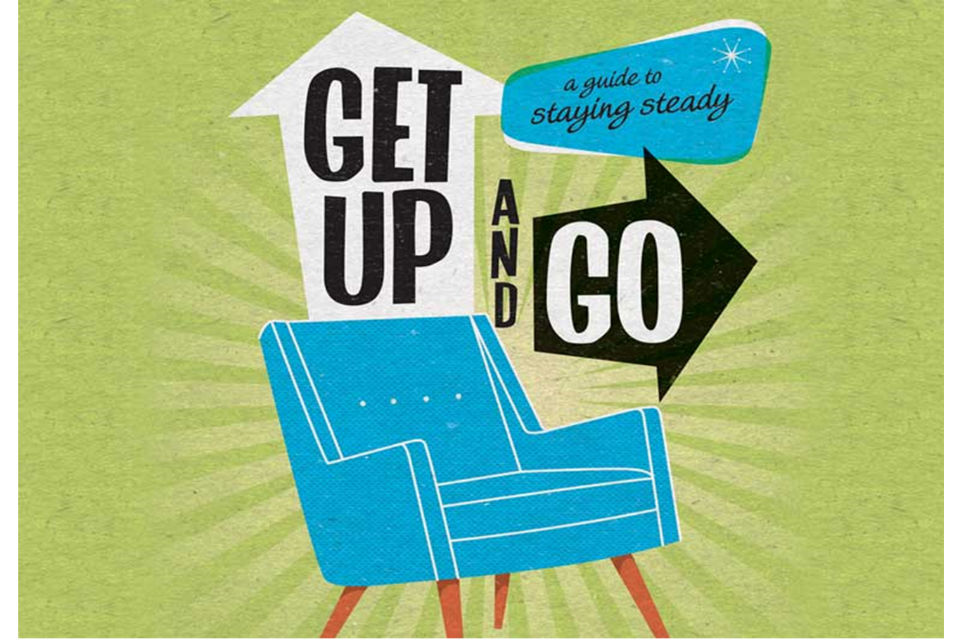Some Known Questions About Dementia Fall Risk.
Some Known Questions About Dementia Fall Risk.
Blog Article
An Unbiased View of Dementia Fall Risk
Table of ContentsThe Best Guide To Dementia Fall RiskThings about Dementia Fall RiskFascination About Dementia Fall RiskEverything about Dementia Fall RiskThe Best Guide To Dementia Fall Risk
The FRAT has 3 sections: fall threat condition, danger aspect list, and action plan. A Loss Risk Condition consists of data concerning history of current drops, drugs, mental and cognitive status of the client - Dementia Fall Risk.If the patient scores on a risk element, the matching number of factors are counted to the patient's fall threat rating in the box to the far. If an individual's loss threat score totals five or higher, the person is at high danger for falls. If the person ratings just four factors or lower, they are still at some risk of dropping, and the registered nurse should use their best medical evaluation to handle all autumn danger variables as component of an all natural treatment plan.
These conventional techniques, in basic, assist develop a secure atmosphere that reduces unexpected falls and delineates core precautionary actions for all individuals. Indicators are important for people at danger for drops.
The 3-Minute Rule for Dementia Fall Risk
For example, wristbands ought to consist of the client's last and given name, day of birth, and NHS number in the UK. Information ought to be printed/written in black versus a white background. Just red color ought to be utilized to signify special client status. These suggestions are constant with present developments in patient recognition (Sevdalis et al., 2009).
Things that are also far might call for the client to connect or ambulate unnecessarily and can potentially be a threat or contribute to drops. Aids stop the person from going out of bed with no support. Nurses react to fallers' call lights quicker than they do to lights started by non-fallers.
Visual problems can greatly trigger drops. Hip pads, when put on effectively, might minimize a hip fracture when fall takes place. Keeping the beds closer to the flooring reduces the threat of drops and major injury. Putting the bed mattress on the floor significantly decreases autumn threat in some health care settings. Low beds are made to reduce the range a patient drops after moving out of bed.
Dementia Fall Risk Fundamentals Explained
Clients that are high and with weak leg muscular tissues that try to remain on the bed from a standing position are likely to drop onto the bed since it's also low for them to reduce themselves safely. Also, if a tall person efforts to get up from a low bed without support, the client is likely to drop back down onto the bed or miss the bed and drop onto the floor.
They're made to advertise timely rescue, not to protect against falls from bed. Apart from bed alarms, enhanced supervision for risky individuals also might assist stop drops.

People with an evasion gait rise loss opportunities significantly. To decrease autumn risk, footwear must be with a little to no heel, slim soles with slip-resistant tread, and support the ankle joints. Advise client to utilize nonskid socks to avoid the feet from gliding upon standing. However, encourage people to use ideal, well-fitting shoesnot nonskid socks for motion.
Little Known Questions About Dementia Fall Risk.
Individuals, particularly older adults, have actually lowered aesthetic capability. Lights an unknown setting assists boost exposure if the person need to get up during the night. In a research, homes with appropriate lights record less falls (Ramulu et al., 2021). Renovation in lights at home may lower loss prices in older adults (Dementia Fall Risk). The usage of stride belts by all healthcare providers can promote security when aiding patients with transfers from bed to chair.

Caretakers are i thought about this reliable for wikipedia reference guaranteeing a safe and secure, safeguarded, and safe environment. Nevertheless, research studies showed very low-certainty evidence that caretakers minimize loss danger in severe care medical facilities and just moderate-certainty that options like video surveillance can lower sitter usage without increasing autumn danger, recommending that sitters are not as useful as at first believed (Greely et al., 2020).
How Dementia Fall Risk can Save You Time, Stress, and Money.

Boosted physical conditioning decreases the danger for falls and Source limits injury that is suffered when fall transpires. Land and water-based workout programs may be similarly advantageous on equilibrium and gait and thereby lower the danger for drops. Water exercise may contribute a positive advantage on equilibrium and stride for women 65 years and older.
Chair Increase Exercise is an easy sit-to-stand workout that aids reinforce the muscles in the upper legs and buttocks and improves movement and freedom. The objective is to do Chair Surge workouts without making use of hands as the customer ends up being more powerful. See resources area for a thorough direction on just how to carry out Chair Rise workout.
Report this page